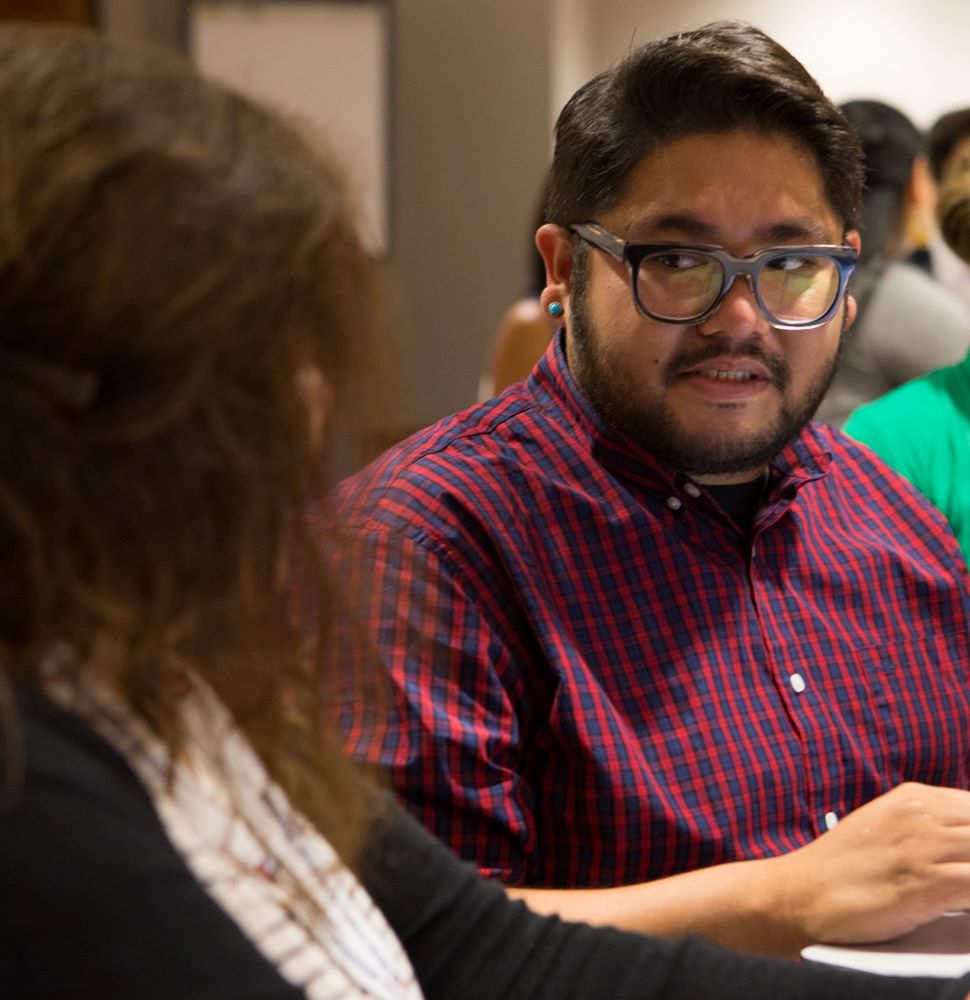Open Doors-Webisode 6: Self-Care and Professionalism-Clip 11A
Hope Bailey: I'm surprised at how tired I am at the end of the day. I feel like I'm taking care of everyone -
- the babies and the family. What can I do to take care of myself?
Amanda Perez: And we have a response here, from an experienced provider, as well.
Michelle Blowe: In the beginning, I would visit the city center water fountain to decompress, before I tended to my own family. I would walk. I would read. And sometimes I would even take a nap. And it did a world of good for me and my family. Now, during the day, I do deep breathing, and I don't sweat the small things.
I tell myself: "You are not Superwoman who can save the world, but you are a super woman who can help families make positive changes by building positive, trusting relationships.
Amanda: We have another input here from a family childcare provider.
Virginia Dee: I exercise every day, and I also eat what I'm supposed to eat. I eat with the children, so I eat what they're eating, and we eat a very healthy diet. And I try to get enough sleep, but that's the hard part is going to sleep early enough.
Amanda: So, we heard lots of specific strategies from folks there. Rosalba, what would you say is an important way to take care of yourself as a staff person?
Rosalba Perez: I think it's important, first of all, to understand that this is hard work and looking for signs of stress. We do our best to look for those signs in our staff when they're stressed and to be able to support them and to provide them with mental-health services, as well as other services that they need. It is important for the staff to understand that these services are not only targeted to families, but it's also targeted to the staff. You are part of a community. You are part of this built-in, strong foundation, and we are here to support you.
Amanda: I love the way that you phrased that, that they're not just for the families, they're also available to staff. Mary Ann, what would you add?
Mary Ann Cornish: I think taking care of yourself is so important and being able to find ways to stay focused and just getting a good balance. Sometimes, you feel like you're isolated -- you're in this all by yourself. And I think staff also feel that way, but once they sit down and talk with other staff, they realize, "Well, I'm going through the same thing. You know, I should have talked to you two months ago before I went home feeling overwhelmed." So, just being able to share challenges, share concerns, and kind of decompress with each other is just as important.
Amanda: But it's interesting, right, because every individual staff person will have a really different way of dealing with stress and really trying to figure out what that is for you, what it is that's gonna be helpful to you, as you're sort of monitoring for these signs. We have another question here from a new provider. Let's listen.
Moneth McCrory: I feel really responsible in this job. It's a little scary. What if I'm missing something? Families are relying on me.
Amanda: So, that's a big question, and before you all respond, let's listen to Dan Bonior, who's a Home Visitor from Maine.
Dan Bonior: Trusting yourself to take on these responsibilities is one tool that you can have in your toolbox when things get a little difficult. But it's also good to accept the idea that as caring and as professional as you are, sometimes you might need some help. It's important to have a network of other professionals that you go to when you need some information or advice. And because you have good support, you know who to talk to and who to go to for resources and information.
Ask your co-workers to be in your network. Advocate to your program managers and your supervisors for good training and good supervision. Meet with other agencies. Attend team meetings for your families. Reach out and call another professional to share information. Having a good team behind you and knowing when to use that team will make our job just a little bit less scary.
Close
 The concept of “nurturing the nurturer” recognizes two important dynamics: supporting others who are in a nurturing role and caring for yourself when your professional role largely focuses on the needs of others. Being a home visitor or a home-based supervisor is intensive and challenging work. You and your staff members must replenish your physical and emotional energy to meet the daily demands of the job.
The concept of “nurturing the nurturer” recognizes two important dynamics: supporting others who are in a nurturing role and caring for yourself when your professional role largely focuses on the needs of others. Being a home visitor or a home-based supervisor is intensive and challenging work. You and your staff members must replenish your physical and emotional energy to meet the daily demands of the job.